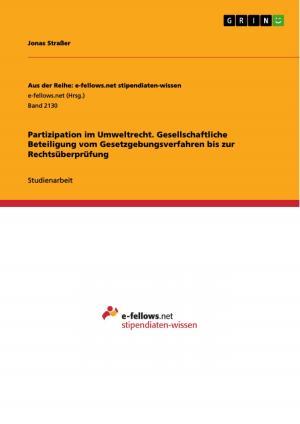| Author: | Christel Zaubitzer | ISBN: | 9783656728511 |
| Publisher: | GRIN Verlag | Publication: | August 25, 2014 |
| Imprint: | GRIN Verlag | Language: | English |
| Author: | Christel Zaubitzer |
| ISBN: | 9783656728511 |
| Publisher: | GRIN Verlag |
| Publication: | August 25, 2014 |
| Imprint: | GRIN Verlag |
| Language: | English |
Master's Thesis from the year 2013 in the subject Business economics - Marketing, Corporate Communication, CRM, Market Research, Social Media, grade: 1,3, University of Münster (Institute for Value-Based Marketing), course: E-Commerce, language: English, abstract: Showrooming is a phenomenon that describes a consumer's behavior of collecting information about a product or service in a physical store and purchasing it in an online store afterwards. For retailers, this behavior can be a major opportunity or thread. To give insights into the phenomenon the thesis aims to determine a) channel attributes that encourage or deject customers from attending showrooming and b) how customer characteristics distinguish showrooming customers from customers who did not purchase online? An empirical study collected data of 334 respondents via an online questionnaire. 149 showroomers and 185 respondents who did not showroom during a recent product purchase were compared regarding their perceived difference of channel attributes in the offline and the online channel. Further, both groups were compared in various customer characteristics. The results of the binary logistic regression reveal that among all observed channel attributes the difference in price, service, purchase convenience, enjoyment and risk perception between the online and offline shop have a significant impact on the likelihood of showrooming, whereas the assortment and after-sales services did not show significant impact. Among the observation of customer characteristics, a positive attitude towards free riding, towards shopping and retailer loyalty were found to have a significant impact on the showrooming likelihood. The internet experience and the level of price-consciousness showed no significant impact. With the results, the thesis supports physical retail stores to adjust the design of channel attributes in order to avoid showrooming behaviors of their customers. It also helps retailers to identify customers that are more likely to attend showrooming and target them specifically to prevent them from attending showrooming.
Master's Thesis from the year 2013 in the subject Business economics - Marketing, Corporate Communication, CRM, Market Research, Social Media, grade: 1,3, University of Münster (Institute for Value-Based Marketing), course: E-Commerce, language: English, abstract: Showrooming is a phenomenon that describes a consumer's behavior of collecting information about a product or service in a physical store and purchasing it in an online store afterwards. For retailers, this behavior can be a major opportunity or thread. To give insights into the phenomenon the thesis aims to determine a) channel attributes that encourage or deject customers from attending showrooming and b) how customer characteristics distinguish showrooming customers from customers who did not purchase online? An empirical study collected data of 334 respondents via an online questionnaire. 149 showroomers and 185 respondents who did not showroom during a recent product purchase were compared regarding their perceived difference of channel attributes in the offline and the online channel. Further, both groups were compared in various customer characteristics. The results of the binary logistic regression reveal that among all observed channel attributes the difference in price, service, purchase convenience, enjoyment and risk perception between the online and offline shop have a significant impact on the likelihood of showrooming, whereas the assortment and after-sales services did not show significant impact. Among the observation of customer characteristics, a positive attitude towards free riding, towards shopping and retailer loyalty were found to have a significant impact on the showrooming likelihood. The internet experience and the level of price-consciousness showed no significant impact. With the results, the thesis supports physical retail stores to adjust the design of channel attributes in order to avoid showrooming behaviors of their customers. It also helps retailers to identify customers that are more likely to attend showrooming and target them specifically to prevent them from attending showrooming.















